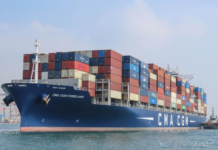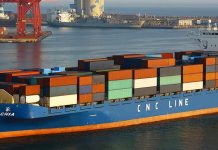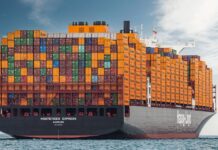
Almost half the respondents who took part in a survey spearheaded by Reed Smith revealed that they expect it to take more than 15 years for the sector to be powered by 100% sustainable fuel sources.
These insights were gathered from nearly 50 of Reed Smith’s clients in the transportation sector, including global companies in aviation, shipping, logistics, manufacturing, utilities, and environmental services.
The International Maritime Organization’s (IMO’s) ambitious target of reaching net-zero by 2050 is well known in the industry, but the question of whether the industry feels this is doable has long been debated. The 2023 IMO GHG Strategy sets out two indicative checkpoints that the IMO will use to benchmark the likelihood of success.
These are:
- Reduce the total annual GHG emissions from international shipping by at least 20%, striving for 30%, by 2030 compared to 2008.
- Reduce the total annual GHG emissions from international shipping by at least 70%, striving for 80%, by 2040 compared to 2008.
Reed Smith’s recent survey on the future of sustainable fuel sources in the transportation industry posed the question as to how long the respondents believed it would take for transportation to be powered by 100% sustainable fuel sources.
Almost half of respondents believe it will take more than 15 years for transportation to be powered by 100% sustainable fuel sources. This is unsurprising where the IMO target of a 70% reduction in carbon by 2040 is seen as ambitious. Interestingly, almost a fifth of respondents said they believed the transportation industry would never be 100% by sustainable fuel sources. When looking at the industry on a global scale, it is clear why there are concerns that certain areas of the industry, such as those based in developing nations with limited investment in infrastructure, will never be operating fully sustainably.
With many national grids largely powered by fuels such as oil and gas, ports and terminals are therefore receiving power from non-sustainable fuel sources. This also means that even where ships are attempting to be more sustainable and connect to shore power, the question is then raised as to from what fuel this power is generated, potentially blocking the 100% sustainable fuel goal.
This feeds in directly to some of our other questions, such as what are the biggest factors affecting the use of sustainable fuel sources here. It is a classic chicken-and-egg situation where investment in infrastructure is undesirable where no vessels/planes will be using it, but owners of assets don’t want to invest in sustainable fuel systems for their assets if doing so severely restricts the geographical operating area of those assets due to a lack of availability of sustainable fuel.
Without investment in both shore facilities and assets, the transportation industry will struggle to reach the IMO goals, and it is possible that our respondents who said the industry would never reach 100% sustainability on fuel will be proved right but we remain hopeful that the IMO goals will be reached if the industry keeps building momentum towards net-zero.
This article was written by Voirrey Davies, lawyer at global law firm Reed Smith.





